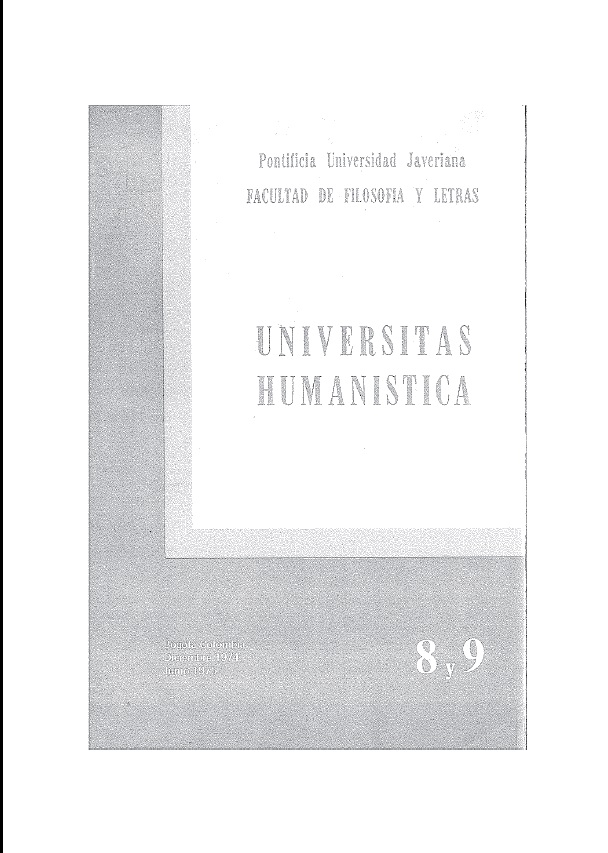Abstract
El filósofo que piensa sobre temas vitales es siempre un filósofo de nuestros días, aunque miles de generaciones nos separen de la suya. Todo filósofo de renombre universal es, en el fondo, un filósofo de la vida, porque nadie puede filosofar venciendo el tiempo si no lo hace sobre la vida consciente, que es la constante proyectada en el horizonte del tiempo. Platón, Aristóteles, Agustín, Kant, seguirán siendo filósofos de todas las horas presentes, porque la temática que ellos dejaron planteada es de contenido inagotable. Pero cuando un filósofo es, por encima de todo, filósofo de la vida, la humanidad suele tributarle el dictado de filósofo en sentido anto-nomástico. Tal es, entre otros, el caso de Séneca. Su filosofía moral de la vida forzosamente ha de interesar a los hombres de todos los tiempos, porque el hombre, considerado como sujeto de la vida moral, no está sometido a transformaciones sustanciales.

This journal provides immediate open access to its content on the principle that making research freely available to the public, encourages greater global exchange of knowledge.
The journal Universitas Humanística is registered under a Creative Commons Attribution 4.0 International Public License. Thus, this work may be reproduced, distributed, and publicly shared in digital format, as long as the names of the authors and Pontificia Universidad Javeriana are acknowledged. Others are allowed to quote, adapt, transform, auto-archive, republish, and create based on this material, for any purpose (even commercial ones), provided the authorship is duly acknowledged, a link to the original work is provided, and it is specified if changes have been made. Pontificia Universidad Javeriana does not hold the rights of published works and the authors are solely responsible for the contents of their works; they keep the moral, intellectual, privacy, and publicity rights.
Approving the intervention of the work (review, copy-editing, translation, layout) and the following outreach, are granted through an use license and not through an assignment of rights. This means the journal and Pontificia Universidad Javeriana cannot be held responsible for any ethical malpractice by the authors. As a consequence of the protection granted by the use license, the journal is not required to publish recantations or modify information already published, unless the errata stems from the editorial management process. Publishing contents in this journal does not generate royalties for contributors.


